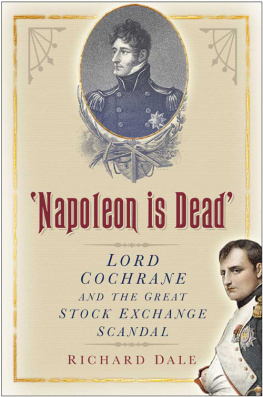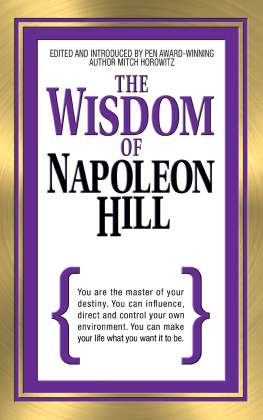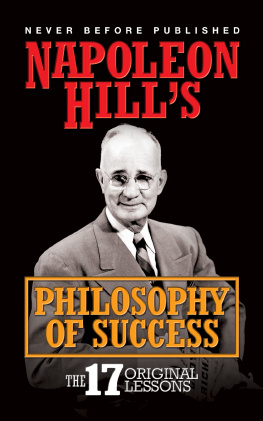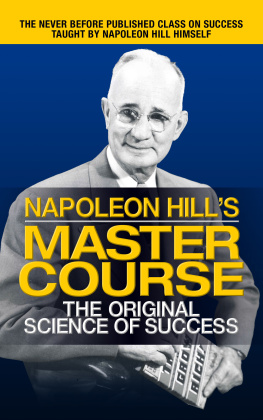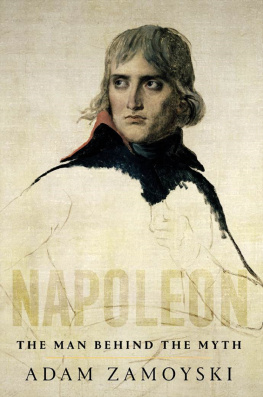HISTORIC
DOUBTS
RELATIVE TO
NAPOLEON BUONAPARTE.
Is not the same reason available in theology and in politics?... Will you follow truth but to a certain point? Burke's Vindication of Natural Society.
The first author who stated fairly the connexion between the evidence of testimony and the evidence of experience, was Hume, in his Essay on Miracles ; a work abounding in maxims of great use in the conduct of life.Edinburgh Review, Sept. 1814, p. 328.
NEW EDITION.
LONDON:
LONGMANS, GREEN, AND CO.
MDCCCLXV.
LONDON:
SAVILL AND EDWARDS, PRINTERS, CHANDOS STREET,
COVENT GARDEN.
PREFACE.
Several of the readers of this little work (first published in 1819) have derived much amusement from the mistakes of others respecting its nature and object. It has been by some represented as a serious attempt to inculcate universal scepticism; while others have considered it as a jeu d'esprit, &c. The author does not, however, design to entertain his readers with accounts of the mistakes which, have arisen respecting it; because many of them, he is convinced, would be received with incredulity; and he could not, without an indelicate exposure of individuals, verify his anecdotes.
But some sensible readers have complained of the difficulty of determining what they are to believe. Of the existence of Buonaparte, indeed, they remained fully convinced; nor, if it were left doubtful, would any important results ensue; but if they can give no satisfactory reason for their conviction, how can they know, it is asked, that they may not be mistaken as to other points of greater consequence, on which they are no less fully convinced, but on which all men are not agreed? The author has accordingly been solicited to endeavour to frame some canons which may furnish a standard for determining what evidence is to be received.
This he conceives to be impracticable, except to that extent to which it is accomplished by a sound system of Logic; including under that title, a portionthat which relates to the "Laws of Evidence"of what is sometimes treated under the head of "Rhetoric." But the full and complete accomplishment of such an object would confer on Man the unattainable attribute of infallibility.
But the difficulty complained of, he conceives to arise, in many instances, from men's mis-stating the grounds of their own conviction. They are convinced, indeed, and perhaps with very sufficient reason; but they imagine this reason to be a different one from what it is. The evidence to which they have assented is applied to their minds in a different manner from that in which they believe that it isand suppose that it ought to beapplied. And when challenged to defend and justify their own belief, they feel at a loss, because they are attempting to maintain a position which is not, in fact, that in which their force lies.
For a development of the nature, the consequences, and the remedies of this mistake, the reader is referred to "Hinds on Inspiration," pp. 30-46. If such a development is to be found in any earlier works, the Author of the following pages at least has never chanced to meet with any attempt of the kind.
It has been objected, again, by some persons of no great logical accuracy of thought, that as there would not be any moral blame imputable to one who should seriously disbelieve, or doubt, the existence of Buonaparte, so neither is a rejection of the Scripture-histories to be considered as implying anything morally culpable.
The same objection, such as it is, would apply equally to many of the Parables of the New Testament. It might be said, for instance, that as a woman who should decline taking the trouble of searching for her lost "piece of silver," or a merchant who should neglect making an advantageous purchase of a "goodly pearl," would be guilty of no moral wrong, it must follow that there is nothing morally wrong in neglecting to reclaim a lost sinner, or in rejecting the Gospel, &c.
But any man of common sense readily perceives that the force of these parables consists in the circumstance that men do not usually show this carelessness about temporal goods; and, therefore, are guilty of gross and culpable inconsistency, if they are comparatively careless about what is far more important.
So, also, in the present case. If any man's mind were so constituted as to reject the same evidence in all matters alikeif, for instance, he really doubted or disbelieved the existence of Buonaparte, and considered the Egyptian pyramids as fabulous, because, forsooth, he had no "experience" of the erection of such huge structures, and had experience of travellers telling huge lieshe would be regarded, perhaps, as very silly, or as insane, but not as morally culpable. But if (as is intimated in the concluding sentence of this work) a man is influenced in one case by objections which, in another case, he would deride, then he stands convicted of being unfairly biassed by his prejudices.
It is only necessary to add, that as this work first appeared in the year 1819, many things are spoken of in the present tense, to which the past would now be applicable.
Postscripts have been added to successive editions in reference to subsequent occurrences.
FOOTNOTES:
It was observed by some reviewer, that Hume himself, had he been alive, would doubtless have highly enjoyed the joke! But even those who have the greatest delight in ridicule, do not relish jokes at their own expense. Hume may have inwardly laughed, while mystifying his readers with arguments which he himself perceived to be futile. But he did not mean the readers to perceive this. And it is not likely that he would have been amused at seeing his own fallacies exposed and held up to derision.
See Elements of Rhetoric, p. i. ch. 2, 4.
HISTORIC DOUBTS
RELATIVE TO
NAPOLEON BUONAPARTE.
Long as the public attention has been occupied by the extraordinary personage from whose ambition we are supposed to have so narrowly escaped, the subject seems to have lost scarcely anything of its interest. We are still occupied in recounting the exploits, discussing the character, inquiring into the present situation, and even conjecturing as to the future prospects of Napoleon Buonaparte.
Nor is this at all to be wondered at, if we consider the very extraordinary nature of those exploits, and of that character; their greatness and extensive importance, as well as the unexampled strangeness of the events, and also that strong additional stimulant, the mysterious uncertainty that hangs over the character of the man. If it be doubtful whether any history (exclusive of such as is confessedly fabulous) ever attributed to its hero such a series of wonderful achievements compressed into so small a space of time, it is certain that to no one were ever assigned so many dissimilar characters.
It is true, indeed, that party-prejudices have drawn a favourable and an unfavourable portrait of almost every eminent man; but amidst all the diversities of colouring, something of the same general outline is always distinguishable. And even the virtues in the one description bear some resemblance to the vices of another: rashness, for instance, will be called courage, or courage, rashness; heroic firmness, and obstinate pride, will correspond in the two opposite descriptions; and in some leading features both will agree. Neither the friends nor the enemies of Philip of Macedon, or of Julius Csar, ever questioned their COURAGE , or their MILITARY SKILL .



